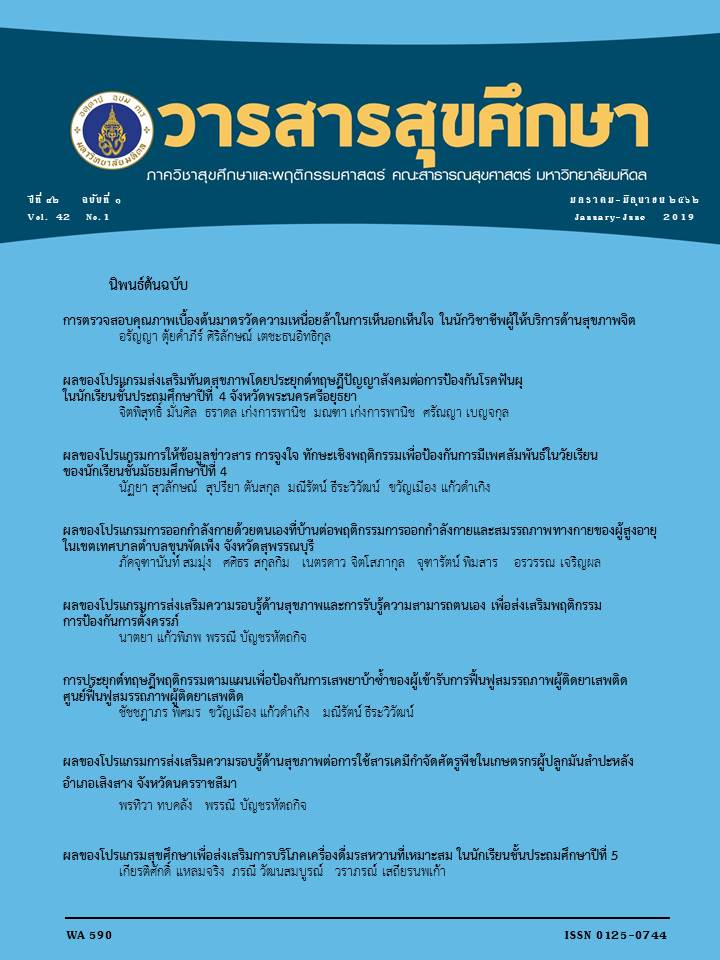Factors Associated with Musculoskeletal Disorders among Lychee Farmers,Phayao Province
Keywords:
Musculoskeletal disorders, Lychee farmers, Ergonomic factorAbstract
Musculoskeletal disorders (MSDs) are a critical occupational health problem in the
agricultural workers. This cross-sectional descriptive study aims to investigate the prevalence and
associated with musculoskeletal disorders among lychee farmers during harvesting stage in Phayao
Province. Multistage random sampling was used to select. the samples and 434 participants were
recruited to the study. The PRECEDE-PROCEED Model was used as the conceptual framework. Data
were collected using a questionnaire. The data analysis of the was performed using descriptive
statistics. Chi-square test and Fisher’s exact test were used to analyse the associations.
The results showed that most of the samples were male, 53.0%. The activity of lychee
choosing and climb up the ladder or stand picking work process was 70.5%. Ergonomic factors
found that working at height and exposure to awkward postures with moderate and low levels
were 59.9% and 24.4%, respectively. The prevalence of the most musculoskeletal disorders
consisted of lower back, upper back and wrist or right hand were 18.7%, 12.2%, and 12.0%,
respectively. Regarding the relationship factors was predisposing factors included age, educational
level and body mass index. Enabling factors included monthly income, work experience, duration
of monthly harvest, daily duration of rest and ergonomic factors. And reinforcing factors included
the perception of occupational health information were significantly associated with
musculoskeletal disorders (p < 0.05). Therefore, the health care sector should promote
occupational health education programs and health promotion for lychee farmers before the
harvest season to prevent and reduce occupational risk.



